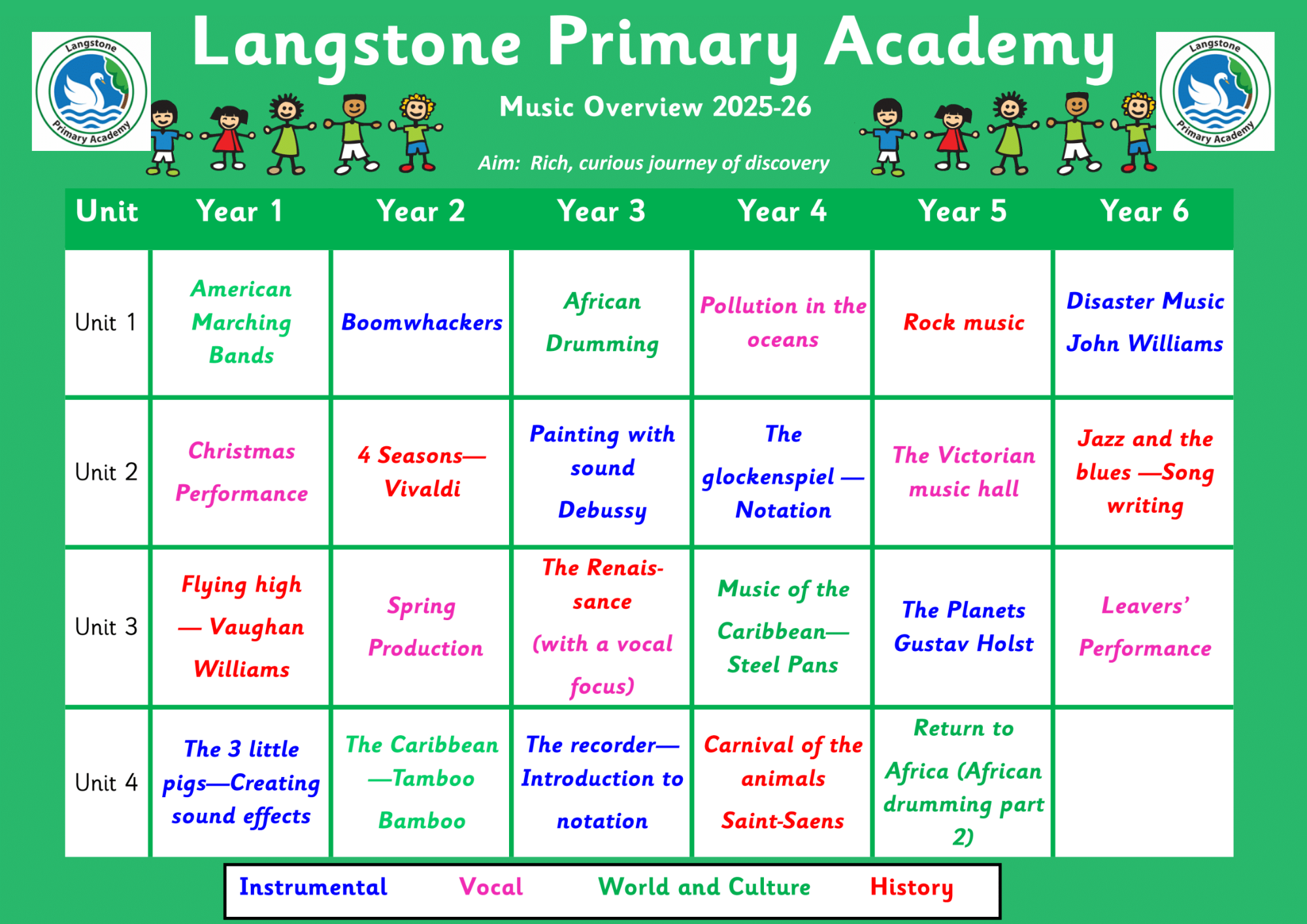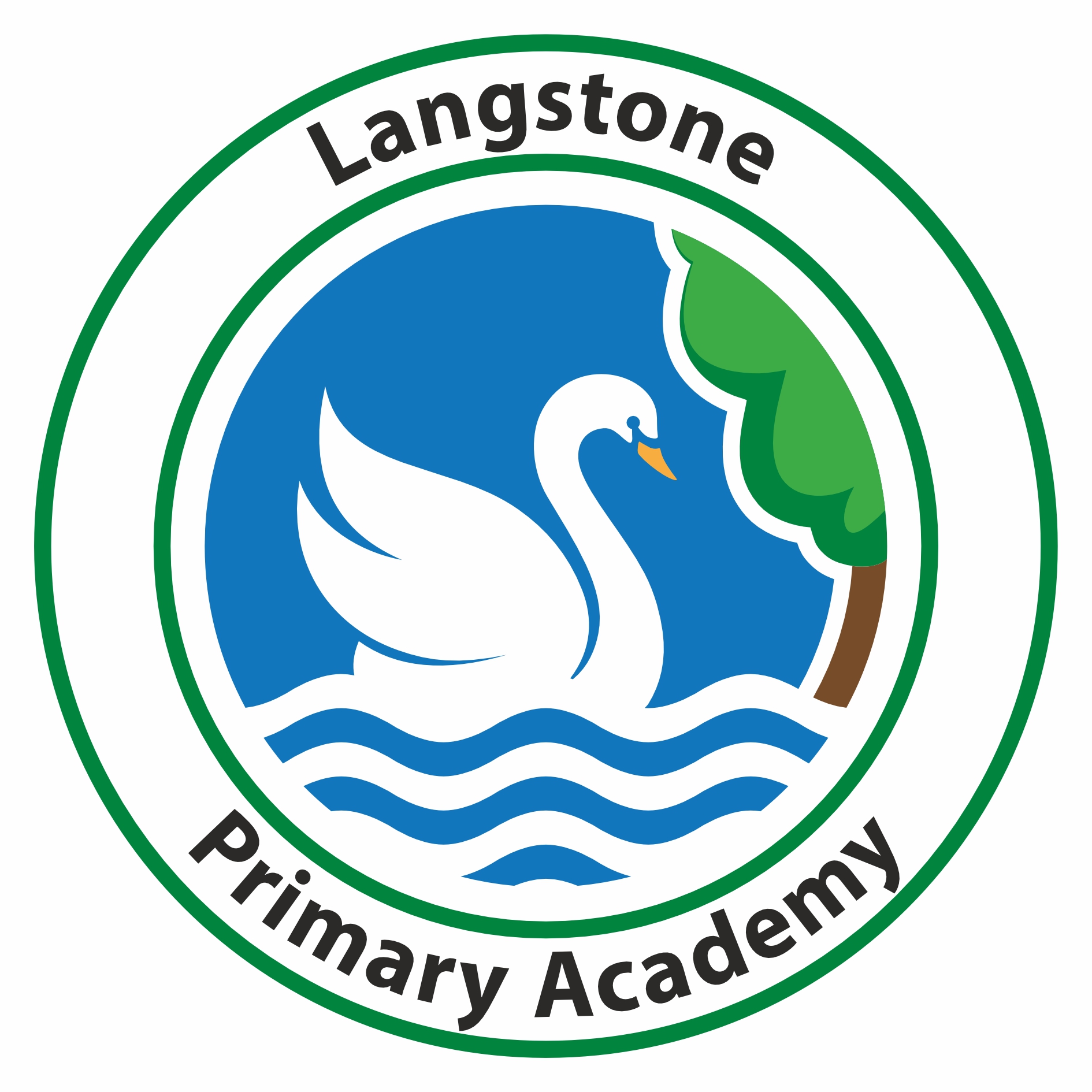Think, Learn, Be Excellent Together
Think, Learn, Be Excellent Together
Think, Learn, Be Excellent Together
Think, Learn, Be Excellent Together
Music
Intent
At Langstone Primary Academy we want the children to develop an appreciation of music and an understanding of its influence on our lives and culture. Children will learn to push their musical boundaries by seeking inspiration from composers, songwriters and musicians throughout history and will become resourceful, innovative and creative members of the school community.
With this in mind, we have developed three main aims that demonstrate the focus of our school.
- We aim to provide enriching hands-on experiences for the children which will inspire and motivate. They are exposed to a variety of talented musicians and composers because all music is fuelled by inspiration and children need to know that it is as varied as it is unique.
- We aim to provide children with the opportunity to explore their creativity and self-expression through composition and performance because we want our children to develop a life-long love for creating music and become confident and reflective musicians.
- We aim to expose children to music from a variety of cultures and genres and provide opportunities for them to appraise, evaluate and analyse the creative works using musical terminology because our children learn best through reflection and discussion with their peers.
In music, this learning will mean that by the end of EYFS, children will be equipped with the knowledge and understanding of:
- how to listen attentively, move to and talk about music, expressing their feelings and responses.
- how to sing in a group or on their own, increasingly matching the pitch and following the melody.
- how to explore and engage in music making and dance, performing solo or in groups.
In music, this learning will mean that by the end of Key Stage 1, children will be equipped with the knowledge and understanding of:
- how to use their voices expressively through singing songs, speaking chants and rhymes.
- how to play a variety of tuned and untuned percussion instruments musically and expressively
- how to listen and respond to a wide range of live and recorded music, giving opinions and discussing likes and dislikes.
- how to use a variety of different stimuli to compose their own music and begin to record these compositions using non-standard notation.
In music, this learning will mean that by the end of Key Stage 2, children will be equipped with the knowledge and understanding of:
- how to play and perform in a variety of styles and contexts (solo, unison and in parts) with increasing accuracy, control and expression,
- how to take inspiration from great musicians and composers to create their own musical pieces, (Painting with sound – composer study – Debussy – Year 3; Carnival of the animals – Composer study – Saint-Saens – Year 4; The planets – composer study – Holst – Year 5; Disaster music – composer study – John Williams – Year 6)
- both the musical process and techniques of musicians and composers throughout history, (The renaissance – Year 3; carnival of the animals – Year 4; rock music – Year 5; jazz and blues – Year 6)
- the need for compositions to be understood by others and that there are techniques and a language for communicating them.
- how to appraise and critique the features and effectiveness of musical elements.

